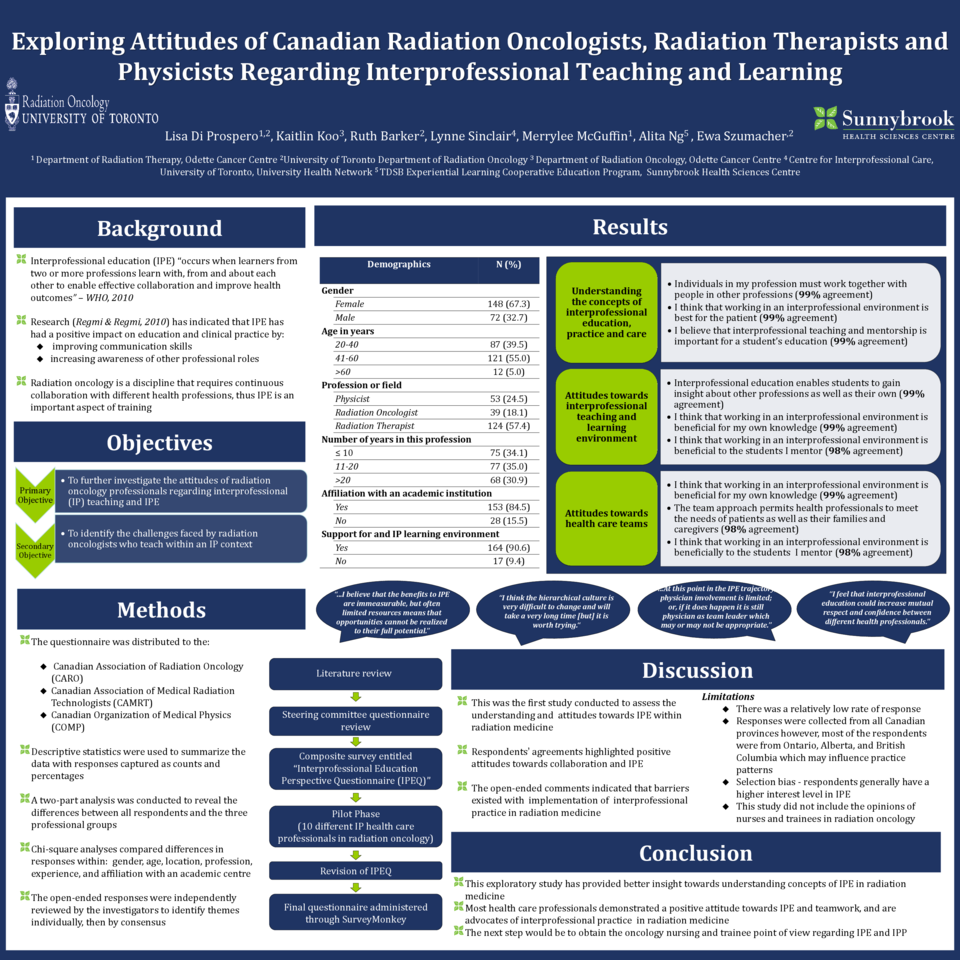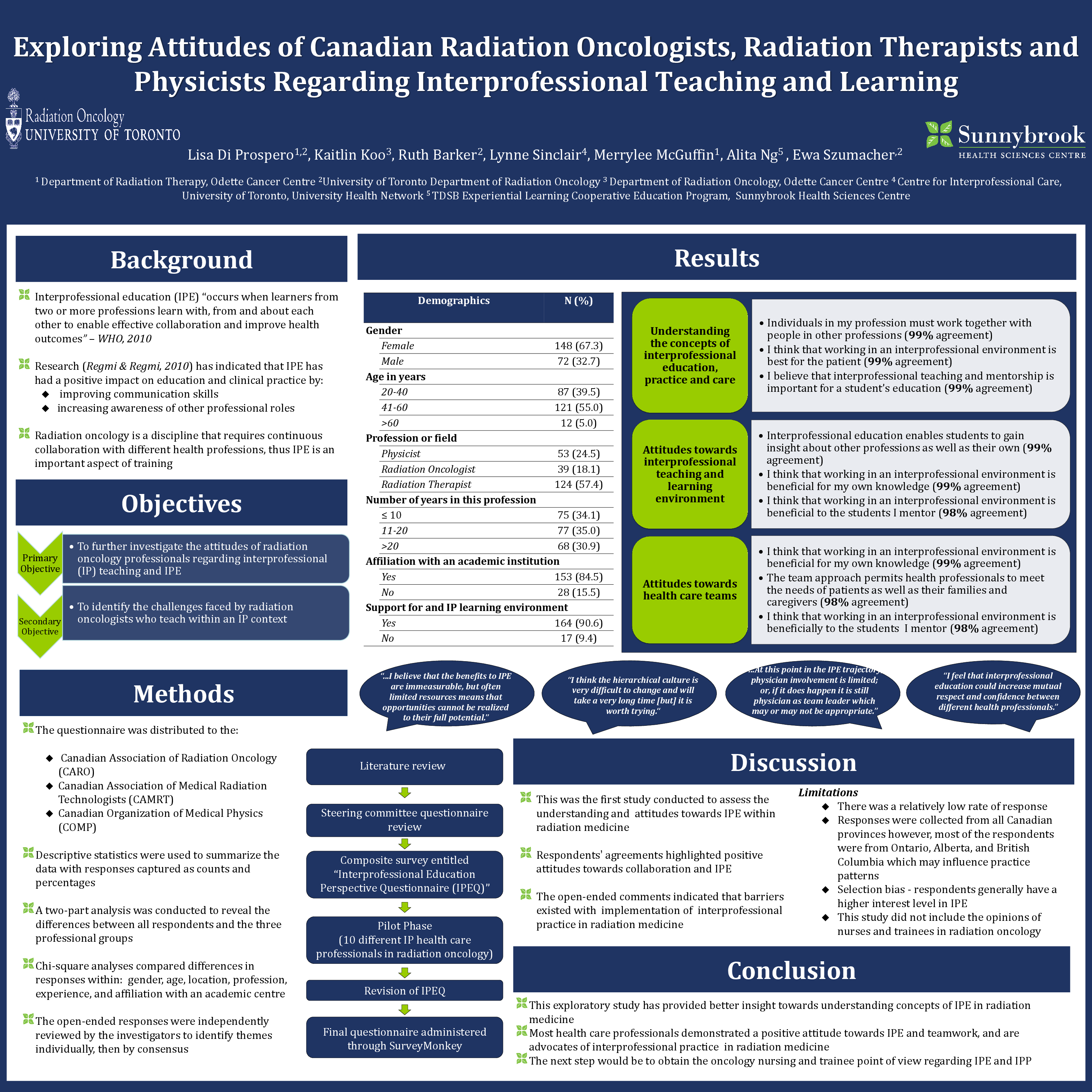Abstract
Lisa Di Prospero, Kaitlin Koo, Ruth Barker, Lynne Sinclair, Merrylee McGuffin, Alita Ng, Ewa Szumacher
Background: Due to emerging new theory of education and the potential benefits of IPE learning and its’ positive effects on patient care, the purpose of this study was to further investigate the attitudes of Canadian radiation oncology professionals regarding IP teaching and IPE.
Purpose: To assess the attitudes of Canadian radiation oncologists, radiation therapists, physicists towards IP teaching and learning and towards working in health care teams.
Materials and Methods: An Interprofessional Education Perspective Questionnaire (IEPQ) was developed, piloted and distributed nationally among Canadian radiation oncologists, radiation therapists and physicists using survey monkey.
Results: Two hundred and twenty one respondents (24% physicists, 18% radiation oncologists and 56% radiation therapists and 3.2% other) participated in the survey. Eighty one percent reported that IPE/IPE was occurring in their centers. All respondents supported IPE/IPE concept and 86% have been actively participating in them. One third completed additional IPE training. Eighty percent declared that individuals in their profession must work together with people in other professions, and 76% have been working well with other professions. Sixty percent responded that IPE/IPC better utilizes resources. Sixty-six percent felt that their students are learning new knowledge, attitudes and skills through an IPE. Fifty-seven percent identified that team approach permits health professionals to meet the needs of patients, their families and caregivers. Sixty-five percent showed that IPE has increased mutual respect and confidence between different health professionals and 60% responded that IPE has lead to more IP research collaborations.
Conclusions: Majority of survey participants support IP teaching and the learning and team environment indicating that IPE promotes mutual respect and makes the environment better for the patients. However, certain professions are more open to IPC. Several suggestions how to improve IPE/IPC were provided. The detailed analysis of the survey results will be presented at the conference.





